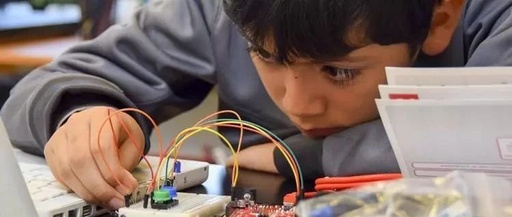Campus Bluetooth Connected
Click the blue text to follow us Campus Bluetooth Connected Bravely pursue your dreams Bluetooth has been paired. Click to connect! Your university life Bluetooth is connected, sharing a beautiful campus life. You have successfully paired with the “Bluetooth” of Hohhot University, please start playing your beautiful campus life. PART.01 Classroom Bluetooth The class bell … Read more








![Lanqiao Cup Arduino Competition Course [High-Definition Course]](https://boardor.com/wp-content/uploads/2025/08/b1a00204-6225-406e-ad6b-011ef338852f.jpg)
